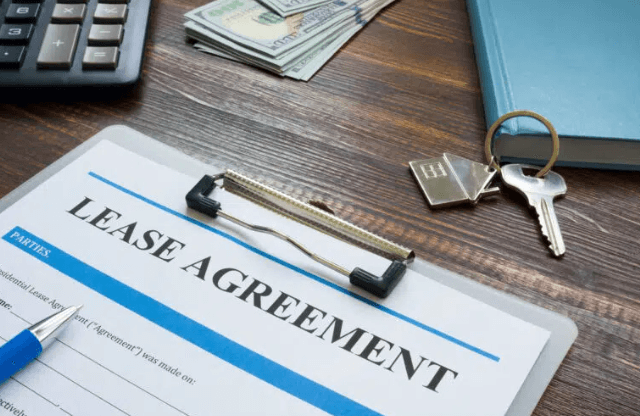Are you a Massachusetts landlord? Want to make sure you’re fully informed and protected when it comes to lease agreements? Look no further! This guide has everything you need.
From required disclosures and tenant protections to rent and fee regulations, we cover it all.
Understand the intricacies of Massachusetts lease agreements and navigate the rental landscape with confidence.
Let’s dive in and equip you with the knowledge you need for a smooth rental process in the Bay State.
Table of Contents
Required Disclosures and Tenant Protections
As a landlord in Massachusetts, you must provide certain disclosures and tenant protections to ensure compliance with state law. When entering into a Massachusetts lease agreement, it’s important to include specific information and documentation to protect both you and your tenant.
One crucial disclosure is regarding lead-based paint, especially for properties built before 1978. You’re required to provide information and disclosure requirements related to lead-based paint hazards.
Additionally, you must give your tenant a security deposit receipt that includes documentation of the deposit amount and details. It’s also essential to provide a written statement of the present condition and existing damages to the rental unit.
Another important disclosure is the written description of fire insurance coverage for the dwelling unit. Lastly, if the property has shared utilities, you must disclose the water submetering and billing arrangement.
Rent and Fees
How should you determine the rent due date in your Massachusetts lease agreement?
The rent due date is a crucial aspect of your lease agreement Massachusetts as it establishes when your tenants are required to pay their rent.
In Massachusetts, there are no specific regulations dictating the rent due date. As a landlord, you have the flexibility to set the due date according to your preferences and needs.
However, it’s important to clearly communicate the due date to your tenants in the lease agreement to avoid any confusion or disputes.
Additionally, it’s recommended to provide a grace period of at least 30 days to allow tenants ample time to make their payment.
Security Deposits
To ensure the protection of both landlords and tenants, there are several key pieces of information that should be included in your Massachusetts residential lease agreement regarding security deposits.
– First, you need to specify the maximum amount of the security deposit, which is limited to one month’s rent.
– Additionally, it’s important to inform tenants that you’re required to pay them interest on their security deposit. This interest must be paid annually or at the end of the tenancy.
– Furthermore, you should state that the security deposit must be returned within 30 days after the tenant moves out.
– It’s also crucial to mention that the security deposit should be held in a separate, interest-bearing account in a bank.
– Finally, you need to outline the permissible reasons for withholding any portion of the security deposit, such as unpaid rent or damage beyond normal wear and tear.
Tenant Screening and Fair Housing Protections
Ensure compliance with tenant screening and fair housing protections in Massachusetts by following these guidelines.
As a landlord, it’s important to understand the protected classes under federal and Massachusetts law to avoid any discrimination.
When handling tenant credit information, be aware of the requirements for obtaining and sharing credit reports.
Additionally, when conducting criminal background checks, it’s important to use fair guidelines for evaluating potential tenants.
For entry into the rental property, make sure to provide advance notice and have valid reasons for entry.
Lastly, when it comes to eviction notices, be familiar with the notice requirements for lease violations and nonpayment.
Other Laws and Facts About Massachusetts
As a landlord in Massachusetts, you should familiarize yourself with other laws and facts about the state to ensure compliance and effective rental management.
It’s important to be aware of the median rent rates in Massachusetts and Boston to set competitive rental prices.
Additionally, there are limitations on the upfront payments landlords can request from tenants. Understanding these limitations will help you avoid any legal issues.
Conclusion
So there you have it, a comprehensive guide to Massachusetts lease agreements. Whether you’re a seasoned landlord or just starting out, understanding the necessary information and protections is crucial.
From required disclosures to rent and fee regulations, security deposits, tenant screening, and fair housing protections, we’ve covered it all.
With this knowledge, you’ll be well-equipped to navigate the rental landscape in Massachusetts and ensure a smooth and legally compliant rental process.






